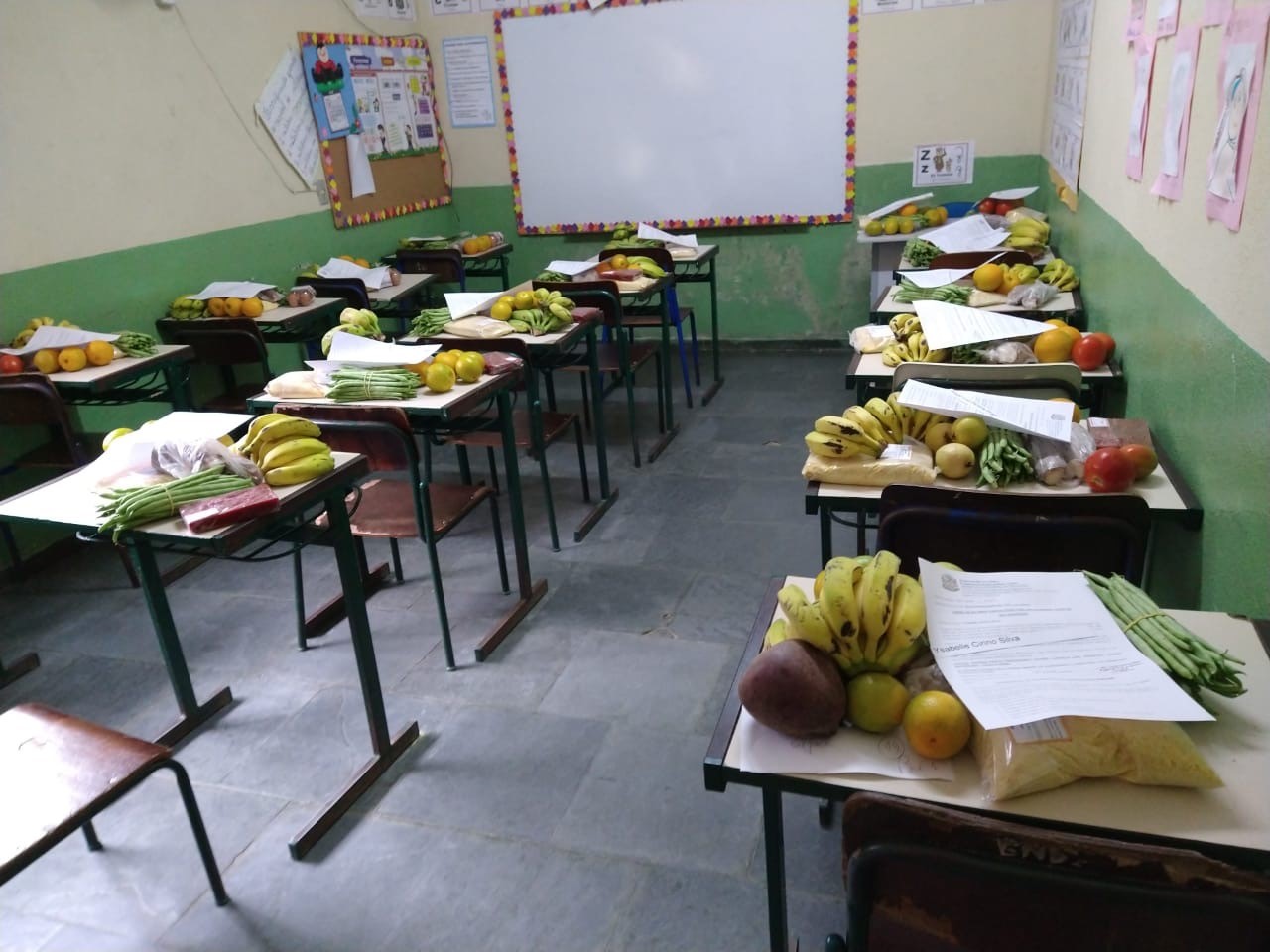
The WFP Centre of Excellence against Hunger Brazil and the country’s National Education Development Fund (FNDE) took part, on Tuesday 22nd September, in a webinar on the health and well-being of students and teachers in Portuguese-speaking countries in Africa. This was the 4th webinar of a series of online events on the reopening of schools in Portuguese-speaking countries in the context of Covid-19. It is the result of a partnership between the Ministry of Education of Cape Verde, and regional offices of UNESCO and the UNICEF. The event aimed at promoting the exchange of experiences and knowledge about how health and education professionals can work together to ensure the physical and psychosocial well-being of the entire academic community.
Bruno Magalhães represented the WFP Centre of Excellence’s Programme team and contributed with a presentation on good practices from West Africa in making school meals available when classes resume. With the support of the WFP Regional Office in Dakar, Bruno described the impacts of the pandemic on the continuity of programmes in the region, inter-agency tools for mitigating the effects of the pandemic, how countries in the region have been responding to it, and what are the concrete plans for reopening schools. Bruno brought the most concrete example of Mali, which released a complete guide for the reopening of its schools despite the severe effects of the pandemic and a significant political turbulence.
Luciana Gottschall, the current General Coordinator of the Brazilian National School Feeding Programme (PNAE), represented FNDE and spoke about the experience of Brazil, which will soon launch a document with recommendations for the execution of the school feeding programme when schools reopen. Luciana described how the Government of Brazil continued to execute the school feeding programme, following the policies and laws that make the programme an example for the world. She stressed the distribution of food baskets while schools remain closed and commented on the importance of purchasing goods from smallholder farmers and the centralised approach of Brazilian policies to reduce the effects of Covid-19 on PNAE.
Both Bruno and Luciana stressed the value of the partnership between the WFP Centre of Excellence and FNDE and how Triangular Cooperation, promoted in Brazil by the Brazilian Cooperation Agency (ABC), allows several developing countries to exchange knowledge and develop. Also present at the meeting were representatives of UNESCO and UNICEF, as well as representatives of the governments of Angola and Cape Verde.
The last webinar in the series will take place on September 29, at 9am Brasília time, and will address the gender dimensions in the context of the closing and reopening of schools. More information about the schedule will be available here.




